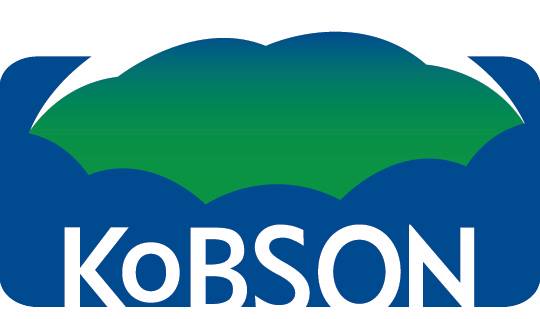DOI: 10.5937/jaes0-36647
This is an open access article distributed under the CC BY 4.0

Volume 20 article 959 pages: 537-545
The use of natural gas as a motor fuel in road transport can significantly reduce fuel costs and the adverse environmental impact of motor vehicles. However, an insufficiently developed infrastructure for compressed natural gas (CNG) constrains the growth in the number of natural gas-powered road transport enterprises. The limited number of automobile gas-filling compressor stations (AGFCS) increases the mileage of motor vehicles, which reduces the efficiency of natural gas use in road transport. This study aims to assess the costs of filling with different types of motor fuel regarding the overall costs of road freight. The scientific novelty of the work lies in establishing the dependence of costs for filling with motor fuel on the operational performance of vehicles and the development of fueling infrastructure of specific motor fuel types. For the first time, the authors evaluated the share of fueling costs for light-duty vehicles (LDVs) for different hydrocarbon fuels regarding the costs associated with the transportation process. It was found that the share of fueling costs varies depending on the type of hydrocarbon fuel used and can range from 1.5 to 15%, depending on the fueling infrastructure development. The results obtained can be used in decision-making on choosing the fuel type in the transportation process by LDVs to minimize overall costs.
1. Mohamad, M., Shariff, S., Mohamed, W. (2020). Ranking the Logistics Uncertainty in Malaysian Road Transport Operations. 11th IEEE Control and System Graduate Research Colloquium, p. 371-374. https://doi.org/10.1109/ICSGRC49013.2020.9232626
2. Moschovou, T., Giannopoulos, A. (2021). Road freight transportation in a period of economic instability: A panel data study in four EU Mediterranean countries. Research in Transportation Business & Management, vol. 41, p. 100622. http://dx.doi.org/10.1016/j.rtbm.2021.100622
3. UISIS. State statistics Average consumer prices (tariffs) for goods and services, from https://www.fedstat.ru/indicator/31448, accessed on 2022-01-25
4. SKT-GROUP. First Russian charging stations: the official website, from https://skt-charge.ru/prices/, accessed on 2022-01-25
5. Ildarhanov, R., Basyrov, A., Kalimullina, A., Nuriev, F. (2020). Metodika vybora podvizhnogo sostava. Nauka I Biznes: Puti Razvitija, vol. 2, no. 104, p. 34-36.
6. Janczarska-Bergel, K. (2020). Proecological Solutions in Miejskie Przedsiebiorstwo Komunikacyjne S.A. in Krakow (Poland). Studies of The Industrial Geography Commission of the Polish Geographical Society, vol. 34, p. 124-137.
7. Navas-Anguita, Z., Garcia-Gusano, D., Iribarren, D. (2019). A review of techno-economic data for road transportation fuels. Renewable & Sustainable Energy Reviews, vol. 112, p. 11-26. https://doi.org/10.1016/j.rser.2019.05.041
8. Eltoumi, F., Becherif, M., Ramadan, H. (2021). The key issues of electric vehicle charging via hybrid power sources: Techno-economic viability, analysis, and recommendations. Renewable & Sustainable Energy Reviews, vol. 138, p. 110534. https://doi.org/10.1016/j.rser.2020.110534
9. Chatzikomis, C., Spentzas, K., Mamalis, A. (2014). Environmental and economic effects of widespread introduction of electric vehicles in Greece. European Transport Research Review, vol. 6, p. 365-376. https://doi.org/10.1007/s12544-014-0137-1
10. Fevang, E., Figenbaum, E., Raaum, O. (2021). Who goes electric? The anatomy of electric car ownership in Norway. Transportation Research Part D - Transport and Environment, vol. 92, p. 102727. https://doi.org/10.1016/j.trd.2021.102727
11. Slusarczyk, B., Kot, S., Pilarz, D. (2020). Potential Influence of Electric Cars on the Natural Environment: Chosen Aspects from Poland. 33rd International-Business-Information-Management-Association Conference, p. 3747-3753.
12. Pavlovic, T., Mirjanic, D., Stankovic, A.M. (2020). The Impact of Electric Cars Use on the Environment. New Technologies, Development and Application, vol. 2, p. 541-548. https://doi.org/10.1007/978-3-030-18072-0_62
13. Kampf, R., Hlatká, M., Gross, P. (2021). Optimisation of Distribution Routes: A Case Study. Communications - Scientific Letters of the University of Zilina, vol. 23, no. 1, p. A62-A73. https://doi.org/10.26552/com.C.2021.1.A62-A73
14. Yang, Q., Hu, X., Tao, S. (2021). Comparison of the impact of China's railway investment and road investment on the economy and air pollution emissions. Journal of Cleaner Production, vol. 93, p. 126100. https://doi.org/10.1016/j.jclepro.2021.126100
15. Zhou, Y., Zhou, Z. (2009). The current level of development of the Chinese CNG automobile market, its future trends and strategies. Natural Gas and LNG, vol. 10, p. 44-48. https://doi.org/10.1016/j.ngib.2018.04.010
16. Chhikara, R., Garg, R., Sakkhi, C., Udayan, K., Gautam, A. (2021). Factors affecting adoption of electric vehicles in India: An exploratory study. Transportation Research Part D: Transport and Environment, vol. 100, 103084. https://doi.org/10.1016/j.trd.2021.103084
17. Dhote, T., Chaitanya, P., Mandot, J. (2021). Mahindra Electric Cars: Challenges of Driving a Revolution in the Indian Market. Asian Journal of Management Cases. https://doi.org/10.1177/09728201211035038
18. Milojević, S. (2017). Sustainable application of natural gas as engine fuel in city buses – benefit and restrictions. Journal of Applied Engineering Science, vol. 15, no. 1, p. 81-88. http://dx.doi.org/10.5937/jaes15-12268
19. Tica, S., Živanović, P., Bajčetić, S., Milovanović, B., Nađ, A. (2019). Study of the fuel efficiency and ecological aspects of CNG buses in urban public transport in Belgrade. Journal of Applied Engineering Science, vol. 17, no. 1, p. 65-73. http://dx.doi.org/10.5937/jaes16-17035
20. Suvorov, A. (2019). Perevod rossiĭskogo avtotransporta na gazomotornoe toplivo osushhestvljaetsja medlenno. AvtoGazoZapravochnyj kompleks + Al'ternativnoe toplivo, vol. 18, no. 12, p. 556-557.
21. Timirhanova, L. (2020). Faktory razvitija rynka gazomotornogo topliva v regionah RF. Problemy Jekonomiki i Upravlenija Neftegazovym Kompleksom, vol. 8, no. 188, p. 37-46.
22. Xie, X., Wang, Y., Li, X. (2019). The Usage Analysis and Policy Choice of CNG Taxis Based on a Multi-Stage Dynamic Game Model. Computational Economics, vol. 54, p. 1379–1390. https://doi.org/10.1007/s10614-016-9645-5
23. Yan, Q., Qin, G., Zhang, M., Xiao, B. (2019). Research on Real Purchasing Behavior Analysis of Electric Cars in Beijing Based on Structural Equation Modeling and Multinomial Logit Model. Sustainability, vol. 11, p. 5870. https://doi.org/10.3390/su11205870
24. Priyatiningsih, K., Sutrisno, M. (2020). Road infrastructure asset management strategy and its impact on the environment. IOP Conference Series Materials Science and Engineering, vol. 830, no. 2, p. 022030. http://dx.doi.org/10.1088/1757-899X/830/2/022030
25. Ghorbani, E., Alinaghian, M., Perboli, G.A. (2020). Survey on Environmentally Friendly Vehicle Routing Problem and a Proposal of Its Classification. Sustainability, vol. 12, no. 21, p. 1-72. https://doi.org/10.3390/su12219079
26. Huang, K., Lv, Y., Huang, C., Wang, Y., Niu, Y., Yang, W. (2014). Prediction of CNG automobile ownership by using the combined model. Journal of Chemical and Pharmaceutical Research, vol. 6, p. 2422-2427.
27. Putra A.A., Magribi L.O.M., Makmur M. (2020). Model of logistic transport distribution in the urban area. IOP Conference Series: Earth and Environmental Science, vol. 419, p. 012098. https://doi.org/10.1088/1755-1315/419/1/012098
28. Stoilova, S. (2020). Methodology for Multi-Criteria Selection of Transportation Technology in Transport Network. Sładkowski, A. (Ed.), Modelling of The Interaction of the Different Vehicles and Various Transport Modes. Springer, Cham, p. 1-103. https://doi.org/10.1007/978-3-030-11512-8_1
29. Hou, X., Cao, J., Jia, N. (2012). Index evaluation consequences of F and E Risk for CNG filling station. Journal of Southwest Petroleum University, vol. 34, p. 171-176.
30. Liu, R., Ding, Z.H., Liu, M.Z. (2021). The relationship between symbolic meanings and adoption intention of electric vehicles in China: The moderating effects of consumer self-identity and face consciousness. Journal of Cleaner Production, vol. 288, p. 125116. https://doi.org/10.1016/j.jclepro.2020.125116
31. Konovalova, T.V., Nadirjan, S. L. (2019). Algoritm vybora podvizhnogo sostava dlja perevozki gruzov. Gumanitarnye, social'no-jekonomicheskie i obshhestvennye nauki, vol. 10, p. 239-242.
32. Shi, T., Si, S., Chan, J., Zhou, L. (2021). The Carbon Emission Reduction Effect of Technological Innovation on the Transportation Industry and Its Spatial Heterogeneity: Evidence from China. Atmosphere, vol. 12, p. 1169. https://doi.org/10.3390/atmos12091169
33. Aytbagina, E., Vitvitskiy, E. (2020). Method of Two-Factor Analysis of Cars Operation in the Road Transport System of Cargo Transportation. 8th International Scientific Siberian Transport Forum (TransSiberia), p. 968-974. http://dx.doi.org/10.1007/978-3-030-37919-3_95
34. Gonzalez-Calderon, C.A., Sánchez-Díaz, I., Sarmiento-Ordosgoitia, I., Holguín-Veras, J. (2018). Characterization and analysis of metropolitan freight patterns in Medellin. Colombia. European Transport Research Review, vol. 10, no. 23. https://doi.org/10.1186/s12544-018-0290-z
35. Makarova, I., Buyvol, P., Shubenkova, K. (2020). Usage of Microscopic Simulation to Estimate the Environmental Impact of Road Transport. Transportation Research Procedia, vol. 44, p. 86-93. http://dx.doi.org/10.1016/j.trpro.2020.02.013
36. Lee, J., Heeseung, S., Papakonstantinou, I., Son, S. (2021). Optimal fleet, battery, and charging infrastructure planning for reliable electric bus operations. Transportation Research Part D: Transport and Environment, vol. 100, p. 103066. https://doi.org/10.1016/j.trd.2021.103066
37. Nikolin, V.I., Vitvickij, E.E., Mochalin, S.M. (2004). Gruzovye avtomobil'nye perevozki. SibADI, Omsk.
38. Nikolin, V.I. (2005). Ocenivaem jeffektivnost'. Gruzovoe i Passazhirskoe Avtohozjajstvo, vol. 10, p. 36-38.
39. Vojtenkov, S.S. (2015). K voprosu o terminologii na avtomobil'nom transporte. Vestnik Sibirskoj Gosudarstvennoj Avtomobil'no-Dorozhnoj Akademii, vol. 4, no. 44, p. 11-15.
40. Settey, T., Gnap, J., Synák, F., Skrúcaný, T., Dočkalik, M. (2021). Research into the Impacts of Driving Cycles and Load Weight on the Operation of a Light Commercial Electric Vehicle. Sustainability, vol. 13, p. 13872. https://doi.org/10.3390/su132413872
41. Trofimov, A.V., Zhuravskij, B.V., Trofimov., B.S. (2021). Normirovanie i kontrol' gorjuche-smazochnyh materialov na predprijatijah avtomobil'nogo transporta. SibADI, Omsk.
42. Author 1, Author 2, Bakunov, A.S. (2017). Article title.
43. Palander, T., Haavikko, H., Karha, K. (2020). Comparison of Energy Efficiency Indicators of Road Transportation for Modeling Environmental Sustainability in "Green" Circular Industry. Sustainability, vol. 12, no. 7, p. 2740. https://doi.org/10.3390/su12072740
44. Starinskaya, G. (2017). Kak v Rossii ustroen rynok AZS? Vedomosti. From https://www.vedomosti.ru/business/articles/2017/10/13/737707-kak-ustroen-rinok-azs, accessed on 2022-01-25
45. Gasoline prices and a map of gas stations in Russia, from https://www.benzin-price.ru/, accessed on 2022-01-25
46. ECARS24. Map of electric stations in Russia, from https://ecars24.info/karta-elektrozapravok, accessed on 2022-01-25
47. TADVISER. Business. IT. Electric vehicle charging stations, from https://www.tadviser.ru/index.php/%D0%A1%D1%82%D0%B0%D1%82%D1%8C%D1%8F:%D0%AD%D0%BB%D0%B5%D0%BA%D1%82%D1%80%D0%BE%D0%B7%D0%B0%D0%BF%D1%80%D0%B0%D0%B2%D0%BA%D0%B8_(%D1%8D%D0%BB%D0%B5%D0%BA%D1%82%D1%80%D0%BE%D0%B7%D0%B0%D1%80%D1%8F%D0%B4%D0%BD%D1%8B%D0%B5_%D1%81%D1%82%D0%B0%D0%BD%D1%86%D0%B8%D0%B8,_%D0%AD%D0%97%D0%A1), accessed on 2022-01-25
48. AUTOSTAT analytic agency. The vehicle fleet in the Russian Federation, from https://www.autostat.ru/, accessed on 2022-01-25
49. LLC Plant "Saratovgazavtomatika". Automobile gas-filling compressor stations (AGFCS), from http://sargaz.gazprom-auto.ru/products_services/product_catalogue/avtomobilnye-gazonapolnitelnye-stantsii-agnks1449/avtomobilnye-gazonapolnitelnye-kompressornye-stantsii-agnks.php, accessed on 2022-01-25







